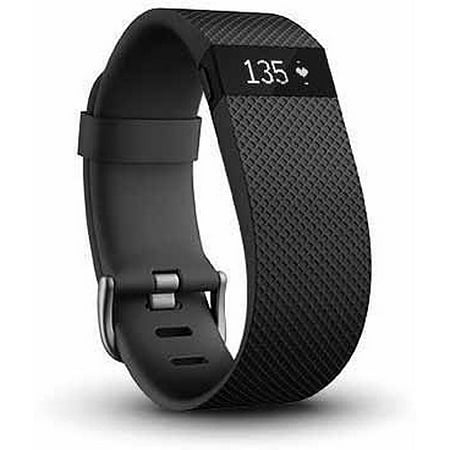In my statistics classes I have a topic early in the semester about "Thinking Statistically" and cite many examples of how data are gathered on a daily basis. One of the good stories I use is about a research project by the Dan-Farber Cancer Institute in Boston where 6,000 over-weight women have been given Fitbits to track exercise over a six year period - I try to get students to think how much data there will have been collected by the end of the study. You can read about this in the Irish Times: Does wearable technology deserve clean bill of health?
 |
| This is the Charge HR Fitbit that I use. Image source: Walmart. |
Today I read in The Sidney Morning Herald: "Fitbits in schools a step in wrong direction, make kids less active, study finds". While the idea of giving Fitbits to teenagers appeals to me in that exercise is encouraged and tracked, the SMH reports that such trackers in schools "has been linked to poor self-esteem and negative feelings of alienation and inadequacy" and that the devices can actually "demotivate children". The study by the University of Birmingham (which is not referenced) reported "feelings of inadequacy and lower self-esteem among pupils". There is a suggestion that setting "unattainable targets" is a major factor in demotivating students. Unintended consequences? I must confess that I had not thought of this. I would hate to see Fitbits being taken away from students because of this.
In the main I am in favour technology being used and data such as activity being tracked. This could leads to a significant addition to research over long periods of time that could aid in the treatment of illnesses and conditions. Imagine tracking heart rates over a half a lifetime to look for early signs of a heart attack. Assuming that data privacy is respected, these data will make a valuable contribution to science. I am in the "opt-in" camp rather than the "opt-out" - data such as this must be voluntarily collected under the same rules, for example, that clinical trials are conducted.
There is another thing - wearable technology is taking off. While we may not be using a Fitbit, the Smartphone in our pockets can do exactly the same thing. I see watches becoming smarter - the day will come when almost all watches will be smart. What then? The above report suggests that it has been a bad start for wearable technology for secondary school students. With more planning and reflection on what has happened so far, perhaps realistic goals can be set for students so that they don't feel demotivated by not reaching 10,000 steps in a day. We can learn from this "mistake" (my word).
No comments:
Post a Comment